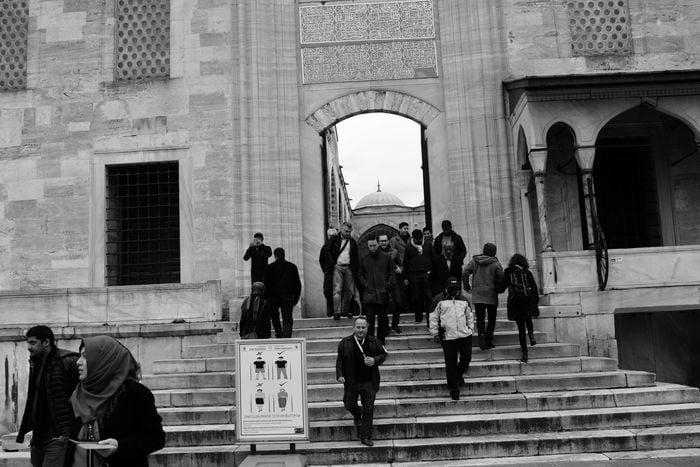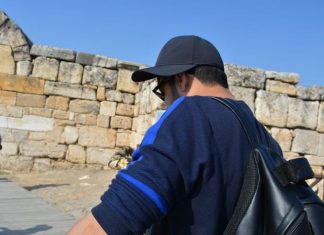Commentary.–You see that the divine beauty is not set forth in form or shape, and on this account it cannot be conveyed by an image (ouk eikonizetai) it is the human form which is transferred to canvas by the artist’s brush.
If, therefore, the Son of God became man, taking the form of a servant, and appearing in man’s nature, a perfect man, why should His image not be made? If, in common parlance, the king’s image is called the king, and the honour shown to the image redounds to the original, as holy Basil says, why should the image not be honoured and worshipped, not as God, but as the image of God Incarnate?
The same, from his Sermon at Constantinople on the Godhead of the Son and of the Spirit, and on Abraham.
Then the father proceeds to bind his son. I have often seen paintings of this touching scene, and could not look at it with dry eyes, art setting it forth so vividly. Isaac is lying before the altar, his legs bound, his hands tied behind his back.
The father approaching the victim, clasping his hair with the left hand, stoops over the face so piteously turned towards him, and holds in his right hand the sword, ready to strike. Already the point of the sword is on the body when the divine voice is heard, forbidding the consummation.
Leo, Bishop of Neapolis in Cyprus. From his book against the Jews, on the Adoration of the Cross, and the Statues Of the Saints, and on Relics.
If you, O Jew, reproach me saying that I adore the wood of the Cross as God, why do you not reproach Jacob, who worshipped on the point of his staff (epi to akron thV rabdou)? Now it is evident that he was not worshipping wood. So with us; we are worshipping Christ through the Cross, not the wood of the Cross.
Commentary.-If we adore the Cross, made of whatever wood it may be, how shall we not adore the image of the Crucified?
Abraham worshipped the impious men who sold him the cave, and bent his knee to the ground, yet did not worship them as gods. Jacob praised Pharao, an impious idolator, yet not as God, and he fell down at the feet of Esau, yet did not worship him as God.
Read More about Apologia of St John Damascene Against those who Decry Holy Images Part 22








